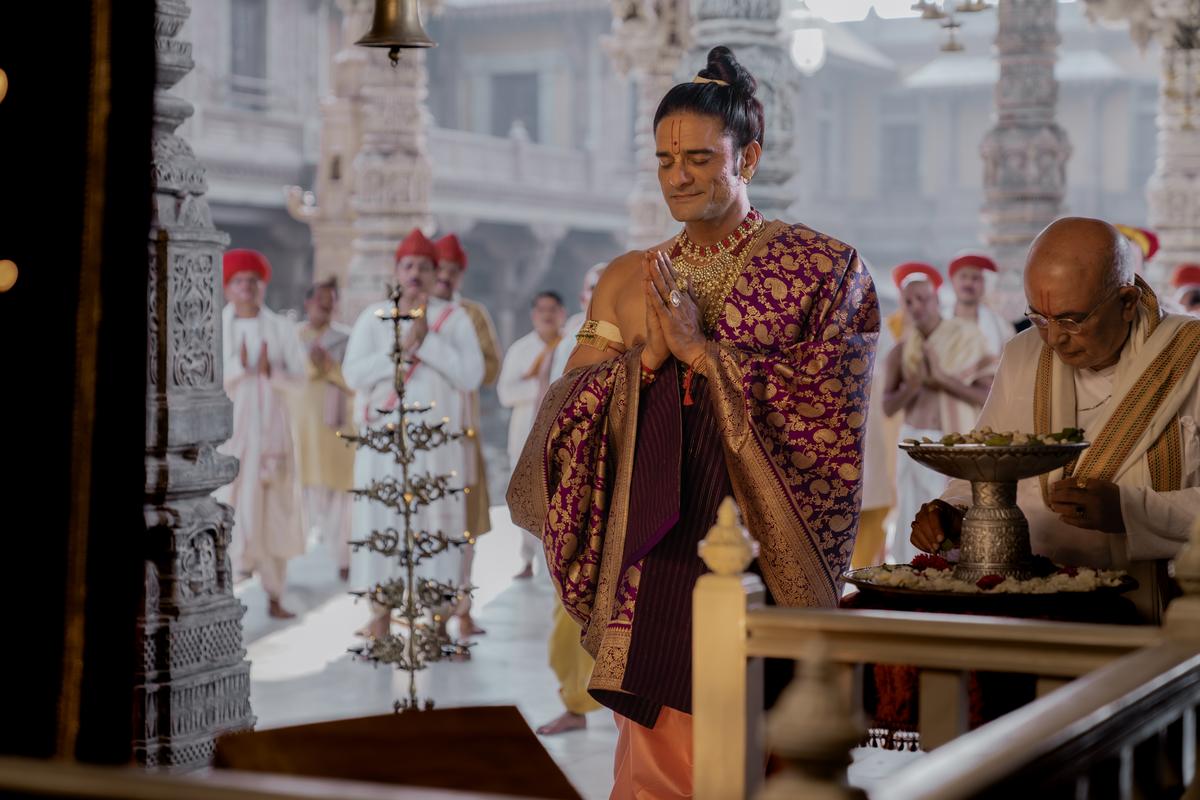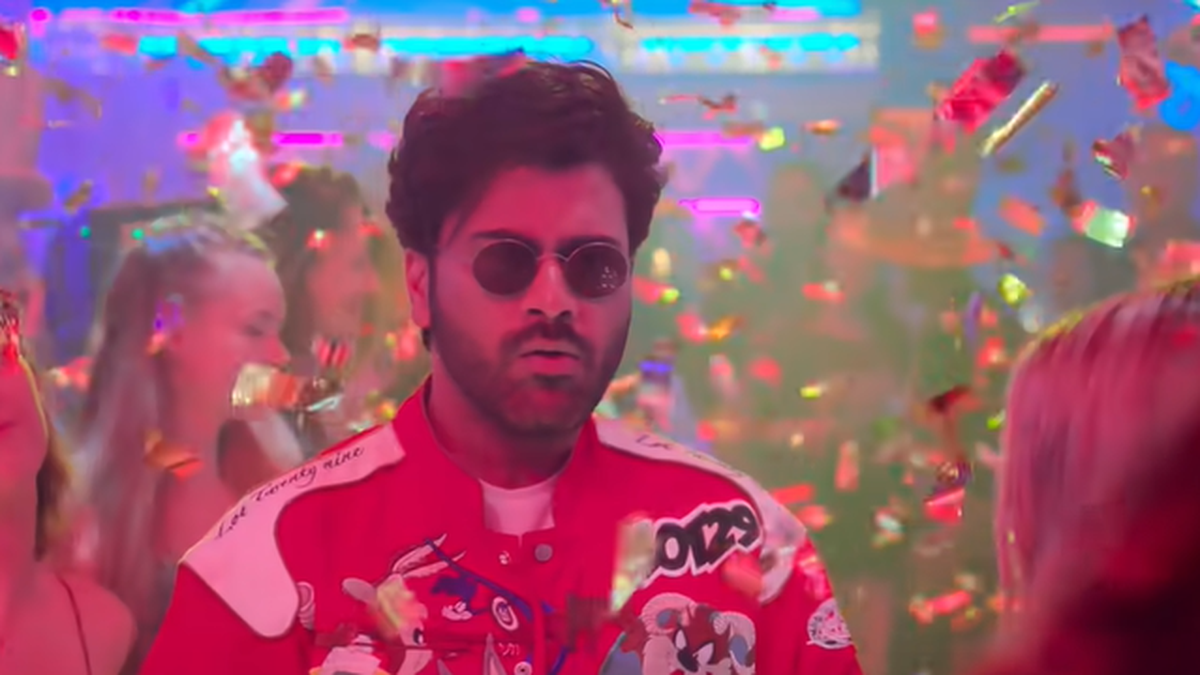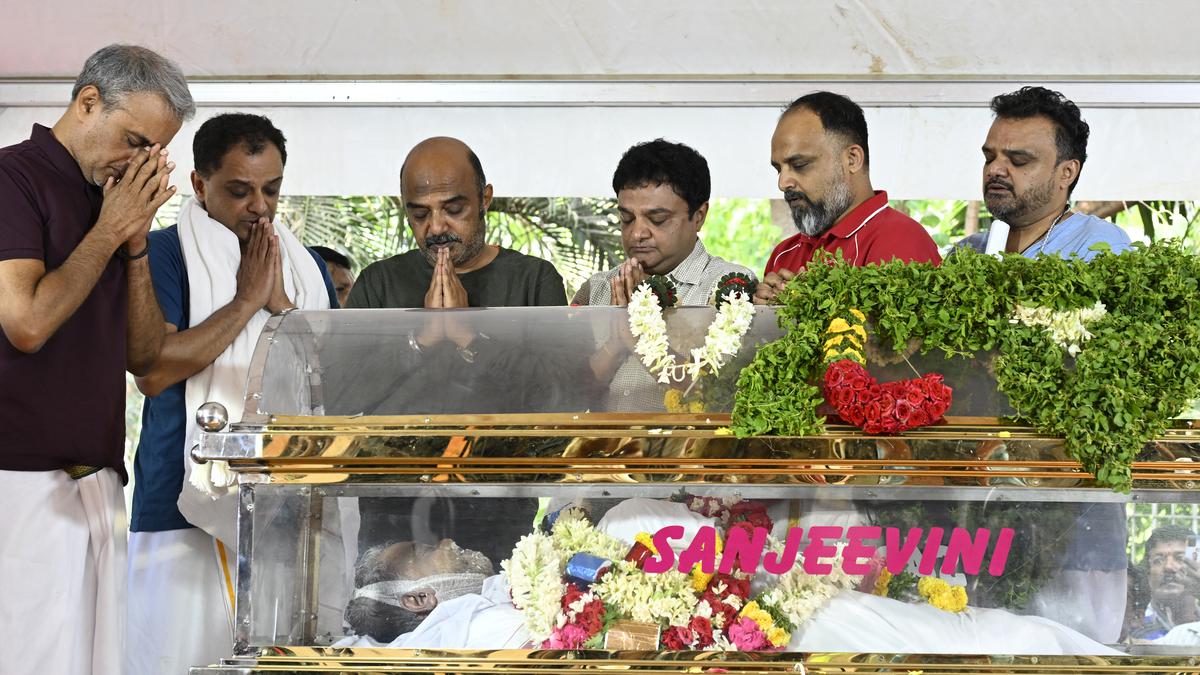It’s a rare privilege, for any movie, to reflect the destiny of its subject matter. In the 1860s, Karsandas Mulji, a journalist and social reformer, was dragged to court over an article exposing the sexual predations of a powerful godman. Over 150 years later, Maharaj — a Netflix film based on Karsandas’s life and starring Aamir Khan’s son Junaid in his debut role — had its release temporarily suspended following a petition by members of a religious sect (it was accompanied, unsurprisingly, by boycott calls on social media). On June 21, lifting the stay a week after the film was slated for premiere on Netflix, the Gujarat High Court ruled: “Having viewed the film, this court found nothing objectionable that would hurt the religious feelings of petitioners or a sect.”

Based on a 2013 Gujarati novel by Saurabh Shah, Karan P Malhotra’s film presents a dramatised account of the landmark 1862 Maharaj libel case, an instance of imperial British judges arbitrating between religious conservatism and progressive reform in a subject nation. The case took the form of a defamation suit brought against Karsandas by Jadunathji, a high priest of the influential Pushtimarga sect of Vaishnavites. It was fought in the Supreme Court of Bombay — as it was then known — and drew widespread public attention and debate. Karsandas, editor of the Gujarati-language weekly Satyaprakash, successfully defended himself in court and was granted a reward (which, it turns out, fell short of the total expenses incurred by him over the course of the trial).

Jaideep Ahlawat in ‘Maharaj’
| Photo Credit:
kanishka ingle / Netflix
Malhotra, curiously, shunts the courtroom events to the closing stages of his film. In retrospect, it’s perhaps a wise decision on the filmmaker’s part, given the comical wigs and exaggerated accents that are the mark of such scenes in Hindi period dramas. Instead, the bulk of the film is constructed as a battle of attrition between Karsandas (Junaid) and Jadunath (Jaideep Ahlawat), fondly called JJ by adherents. A charismatic figure, JJ casts a spell over his flock, preying on the vulnerability and indoctrination of female devotees and exploiting them sexually. Everyone appears to be in thrall of JJ. Only Karsandas, a believer and a Vaishnavite himself, appears immune, having grown up questioning the superstitious practices — though not the faith itself — of his orthodox sect.

In his introductory scenes, Karsandas stands out as a beacon of virtue in a conservative world, advocating for widow remarriage and smilingly borrowing chutney from the plate of an ‘untouchable’. The film saddles him with an intensely personal motive to rebel against JJ and expose his sexual liaisons to the wider public. Karsan’s fiancee, Kishori (Shalini Pandey) — one of the priest’s numerous victims — takes her life after Karsan breaks off their engagement in disgust. He’s made to realise his mistake: obsessing about the “honour” of his betrothed and denying her a chance to emancipate herself. To modern eyes, Karsan comes across as a 19th-century male saviour; the film, indeed, is full of men arguing about the rights of women. Some respite is offered in the form of Viraaj (Sharvari Wagh), who makes a late entry into Karsan’s life and joins him in his crusade against JJ.
Maharaj (Hindi)
Director: Karan P Malhotra
Cast: Junaid Khan, Jaideep Ahlawat, Shalini Pandey, Sharvari Wagh, Jay Upadhyay
Run-time: 131 minutes
Storyline: The real-life story of a journalist in 1860s Bombay and his crusade against a powerful, lecherous godman
Early on in the film, a narrator describes the mercantile harbour of Bombay as “more a concept than a city.” Malhotra and his writers permit us a glimpse into the conflicting ideas and ideals shaping India at the time: the modernizing zeal of reformers like Karsandas and Dadabhai Naoroji, the intimidating influence and wealth of religious chieftains like JJ, the confusion and tentativeness of the common masses. The production and art design are rather set-like — as was the case with another YRF production, Jayeshbhai Jordaar, set in modern Gujarat — though there is a charming, painterly quality to Rajeev Ravi’s cinematography.

The film presents, in no uncertain terms, what a terrorizing hold JJ had over his community (“He’s become the face of the sect,” we’re told, drawing wealthy patrons on his own steam and consolidating power in his hands). At the same time, the film balances out its criticism of blind faith and personality cults through unifying portrayals of religion itself. When JJ imposes an embargo on temple visits (so as to coerce an apology from Karsandas), the young man responds by installing a picture of Lord Krishna under a peepal tree and leading a crowd in aarti. Much later, there is a sappy echoing of the Janmashtami story, an imperiled pregnant couple ferried out via bullock cart at midnight.
Junaid Khan is sincere and sharp-featured as the striving Karsandas — he has a Rami Malek jawline — though still miles away from emerging a captivating leading man: he is especially dull in the courtroom scenes. You can catch Jaideep Ahlawat — an effortless portrait of calm-faced villainy — stifling a smile once in a while, given the ordinariness of his opponent. There is a 1970s-style confrontation in the rain between hero and villain; Ahlawat raises his voice just once, and it’s enough to illustrate the gulf between the two performers. Sharwari Wagh imbues her limited scenes with charm and spunk, and Jay Upadhyay (Scam 1992) is low-key wonderful as JJ’s conniving factotum.

Earlier this year, the Tamil film Annapoorani was pulled from Netflix following right-wing trolling and complaints of hurting religious sentiments. A film like Maharaj — simple, sedate and self-congratulatory — would likely slip under the radar if not for the touchiness of our times. That Netflix has released this film, the debut of a major star kid, without any promotions or fanfare, let alone a trailer, underlines the level of caution streaming platforms are currently observing. It turns the simplistic message of Maharaj on its head. Progress is rarely, if ever, a straight line.
Maharaj is currently streaming on Netflix



